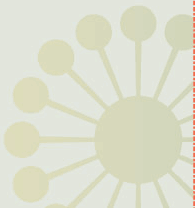STUFF OF
DREAMS “Art is the final product in the parataxic totemization of the traumatic aspects of the numinous element," wrote John Curtis Gowan. We have come along way in our attempts at defining art, or judging what is good art and what is not. There are many who would prefer not to define it at all and simply say, "I know it when I see it!" and "If I like it, it's good art." Like truth and beauty, art can also be a very subjective thing. Gowan is right when he says art is an aspect of the numinous, deriving from the depths of one's own spirituality. Art springs from the mind of its creator and resonates in the mind of its perceiver. When it has established that communicative link it has fulfilled its function—one mind speaking to another. John Keats, writing about the discovery of a Greek artifact surviving in the dust of two millennia, called it the "still unravished bride of quietness. . .foster child of Silence and slow Time.” Art, like the Grecian Urn itself, often comes from the mind at rest, when one is not thinking about the daily routines of life and the business of making a living. It is the stuff of dreams and daydreams, of fantasy and visions. It is a break from the ordinary, of discovering something uncommon about the mundane. We need those periods of life when time slows and we can think uncommon thoughts. We need those sabbaticals of the soul when our creative juices can flow. We need those times of quietness when we can let art speak to us and inspire us, challenge us and teach us. We need those pauses in life when we can rediscover truth and beauty. Years ago it was the practice of those who desired to discover their own inner nature and be attuned to their higher self to retreat into the desert and practice what the ancient Greeks called “kenosis”—an emptying of oneself. One needs to unload the baggage of preconceived notions and rigid mindsets, to unlearn what one has been taught. Before a bowl can be filled it must first be emptied. The new world cannot be discovered without leaving the shores of the old. Purgation prepares us to be receptive and to be renewed. This why we take “vacations”—to vacate the familiar and the routine so that we can have a renewal of mind and spirit. Summer ought to be a time when life slows down and when each of us can discover the artist and poet within us. Plato once wrote: “The poet is a light and winged and holy thing, and there is no invention in him until he has been inspired and is out of his senses, and his mind is no longer in him; and when he has not attained to this state, he is powerless and unable to utter his oracles.” We need to be out of minds occasionally. Dr. Harry L. Serio |
|
